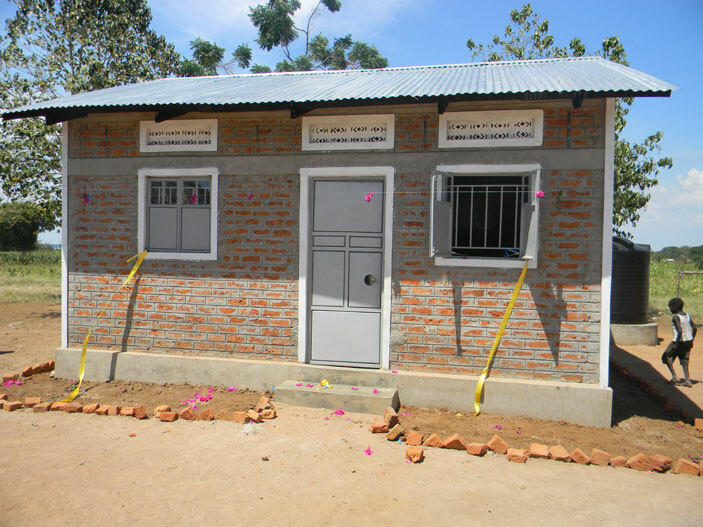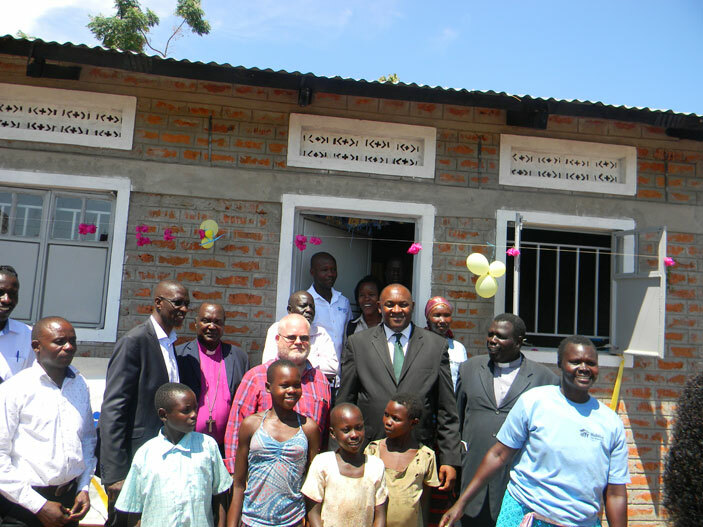Huge housing deficit challenges stakeholders in Uganda
Nov 25, 2016
Until Nakiberu got the key to the three-bedroom house in Bujjuko recently, the mother of four stayed in a single room in Kisenyi I, one of the major Kampala slums.

Betty Nakiberu, 39, can't stop praising the Lord for the miracle of a decent house He gave her in Wakiso, a few kilometres outside Kampala.
Until Nakiberu got the key to the three-bedroom house in Bujjuko recently, the mother of four stayed in a single room in Kisenyi I, one of the major Kampala slums.
Nakiberu said in Kisenyi, the living conditions were characterised with congestion, and poor waste management due to lack of motor-able paths and pit latrines. That is what she called home for decades; a tiny rented room at sh90,000 a month.
But as developments started claiming the slum in Kisenyi around 2008, many cheap houses for the poor were demolished and replaced with tall buildings.
Nakiberu told New Vision that victims of the demolitions were never compensated, but were displaced and ended on the city street as beggars.
It was that background that she exploited to mobilise a group of other women who were living with HIV/AIDS like her to start up a village housing cooperative.
That is the journey the 34 women have walked to owning decent houses.
 Model house for villagers
Model house for villagers
As was routine, the women who would meet on Tuesday to remit their weekly sh2000 for the cooperative, were one day visited by officials from Shelter and Settlement Alternatives.
Nakiberu said after the officials were told their ordeal, they became regular visitors at the meetings and with time they offered to equip them with financial management and saving skills.
"The group later offered to build us decent but affordable houses in Bujjuko at sh26m each," Nakiberu recalls.
"We were to pay for the houses in instalments over years."
New Vision learnt that each woman who made sh1m on her saving account would then be given the key to her new house and then commence payment of the balance in instalments of sh70,000 every month.
The women will pay for the houses for a period of 20-30 years.
Dorothy Baziwe, executive director of the initiative told New Vision that after learning about the women's' stories, they formed a network that mobilised a grant worth sh200m for buying the two-acre piece of land, where the houses were built.
Baziwe explained that to build cheap but decent houses they chose to use interlocking soil stabilised bricks instead of burnt bricks, which are not eco-friendly.
Uganda's housing deficit
Nakiberu and her colleagues should count themselves lucky because access to cheap, decent and affordable houses in Uganda is still a very big challenge.
Recent statistics show a growing urbanisation in the country at 5.2% per year with 60% of the population living in slums. As a result, there is a high growth of informal settlements in urban centres that need urgent attention.

Figures at Ministry of Lands, Housing and Urban Development show that the housing deficit in Kampala stands at 97,500 worse than in other parts of the country.
Yet the general housing deficit in Uganda is even worse, according to the chairperson of the National Planning Authority (NPA), Kisamba Mugerwa.
While presenting a paper on the role of urbanisation in social-economic transformation of Uganda at recent conference in Kampala, Kisamba revealed that the country has a housing deficit of eight million units including 2.3 million in urban centres.
The National Director of Habitat for Humanity, Uganda, Brent Potts told New Vision that there is an urgent need for stakeholders in the housing sector to come together and lay strategies on addressing the challenge.
Brent said that graduates who earn small monthly salaries of about sh300,000 salaries but live in urban centres should be guided on how to save and find cheap housing to build affordable but decent houses.
He also noted that other vulnerable communities in rural areas need assistance to build decent houses.
Brent said in the previous financial year his organisation built 130 houses for the needy and vulnerable people in Kumi and Mayuge districts in eastern Uganda.
He added that the organisation also set aside sh2.1b in the last quarter under its microfinance programme for giving out cheap loans.
Baziwe said that housing cooperatives could be a solution for vulnerable communities to build decent houses.
"Housing cooperatives make housing affordable because if you are 30 people and you want to build to buy a piece of land at sh30m, it means each one of you will only have to contribute sh1m," she said.
World Bank sounds alarm on housing deficit
World Bank recently warned that due to the increasing global population, by 2030 the total number of people in need of decent houses will rise to 3 compared to the current 1.2 billion people.
A study by McKinsey Global Institute's (MGI) suggested that 1.6bn people across the world- or one third of the urban population - could be living in substandard housing or foregoing essentials to pay for their home within 10 years.
It's on that ground that that the Ministry of Lands, Housing and Urban Development last week organised a joint sector review meeting with the Theme, "The journey to Middle Income Economy; The role of Lands, Housing and Urban Development Sector".
Just before the Ministry hosted a sector review meeting, cabinet endorsed a new housing policy in May 4 to mitigate the national housing deficit that it said stands at 1.6m.
Government wants to invoke the policy to deal with the deficit by increasing the production of adequate housing units for all income groups from 60,000 to 200,000 per annum to meet the housing needs by 2022.
